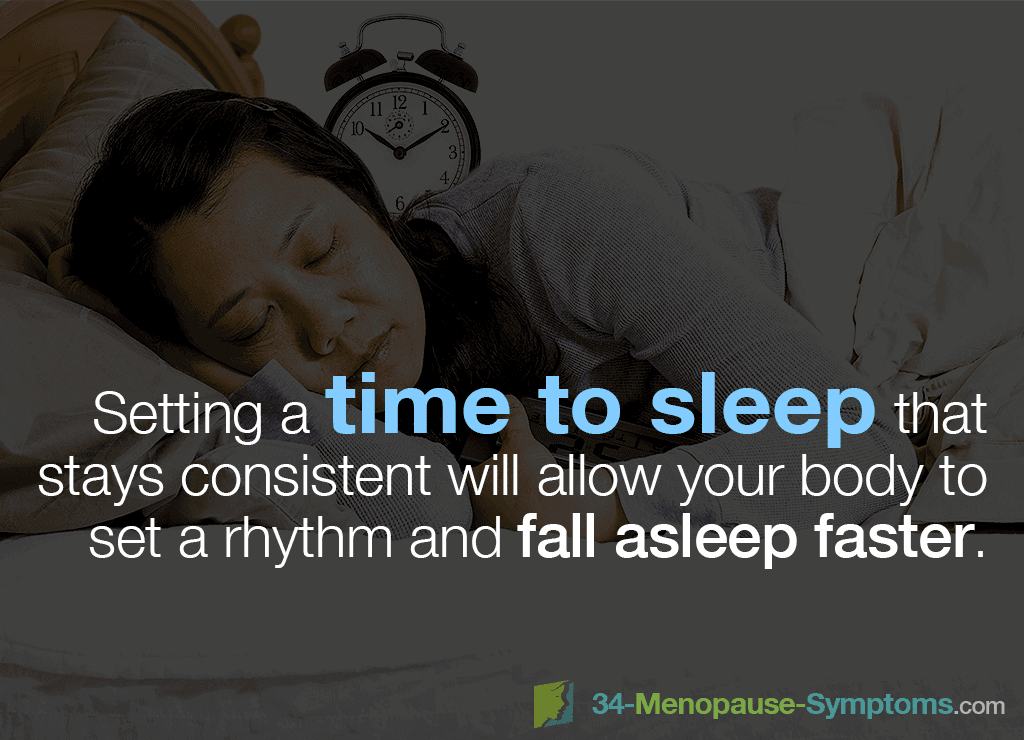Sleep is not only a relaxing escape from the pressures of the daytime, but it is also necessary in order to keep the brain functioning the way it should. Adults are meant to get between 7 - 9 hours of sleep a night - for teenagers and children, it's even more - but a large percentage of people aren't able to get that much sleep each night, and women going through menopause are especially likely to have trouble. If you're struggling to reach seven hours of sleep, here are a few suggestions to help with it.
Set a Bedtime Routine
Although it can be tempting to adjust sleep and wake hours to free time, doing so can actually harm the amount of sleep you get. If you constantly change what time you go to bed and when you're waking up, your body doesn't know when it should be preparing for sleep or for waking - which can lead to a restless night of tossing and turning. Setting a time to sleep and a time to wake up that stays consistent will allow your body to set a rhythm and fall asleep faster.
Avoid Screens and Activity
Just before bed should be a time of slowing down and relaxing, not activity. Strenuous exercise or other activity within an hour before bed can actually wake your body up rather than tire it out. Screens can do the same, even if they may feel relaxing, because the light they emit signals to the brain to keep it awake. Cutting down on screen time and relaxing with a book can improve sleep quality.
Exercise
You shouldn't be doing anything hard exercise right before bed, but earlier in the day, exercise can help make you more likely to sleep. Not only will it tire your body out more, but it can also improve your health in ways that can reduce the symptoms of insomnia. Exercising outside can help even more, such as taking a leisurely walk. Exercise is also a way to provide help for sleep apnea, which may be causing trouble.
Avoid Heavy Meals
Although eating a lot of food and drinking a glass of wine can make you feel tired enough that you want to sleep, both actually can make it more difficult to fall asleep, stay asleep, or sleep restfully. Too much food in your system, especially close to bed, can keep you awake. And although alcohol makes you drowsy, it actually has been shown to interrupt sleep.
Relax Before Bed
If you're too tense before bed - such as if you're worrying that you won't be able to fall asleep - it can make you much more likely to spend hours lying awake. Take the time to calm your mind and body before getting into bed by reading a book, taking a warm bath, or something else that works for you. Also, meditation can reduce insomnia and other menopause symptoms, while chamomile or lavender infusions can promote calmness and relaxation.
Avoid Nicotine, Caffeine, and Alcohol
While you're keeping track of what to avoid, add stimulants to the list. Nicotine and caffeine, two of the most common stimulants, are common enough that many people may not realize how much these substances affect their sleep. A cigarette before you go to bed can keep you awake for a long time, and coffee drunk as early as midafternoon might be the reason you spend a restless night.
Not being able to sleep can be frustrating as well as something that negatively impacts your life. If you need help sleeping, read about these solutions to overcome sleep disorders to learn more about how to find ways to beat insomnia and get a better night's sleep.
Sources
- Centers for Disease Control and Prevention. (2016). 1 in 3 adults don't get enough sleep. (2016). Retrieved May 17, 2017, from https://www.cdc.gov/media/releases/2016/p0215-enough-sleep.html
- National Heart, Lung, and Blood Institute. (2012). Strategies for Getting Enough Sleep. Retrieved May 17, 2017, from https://www.nhlbi.nih.gov/health/health-topics/topics/sdd/strategies
- National Heart, Lung, and Blood Institute. (2011). Your Guide to Healthy Sleep. Retrieved May 17, 2017, from http://www.nhlbi.nih.gov/files/docs/public/sleep/healthy_sleep.pdf
- National Institutes of Health. (2016). Can't sleep? Try these tips. Retrieved May 17, 2017, from https://medlineplus.gov/ency/patientinstructions/000853.htm




